The five books everyone is talking about in September
Spy-novel master John le Carré revisits a cold case; Jesmyn Ward tells a haunting Southern gothic ghost story; and Stephen Greenblatt searches for the real story of Adam and Eve
Share

This month in books: John le Carré looks back in anger; Claire Messud delivers a subtly devastating coming-of-age novel; Stephen Greenblatt tells the story of how the first couple became embedded in our cultural DNA; and Jesmyn Ward leads a Faulkneresque road trip through the troubled Deep South. See all of our book reviews.
A LEGACY OF SPIES
By John le Carré
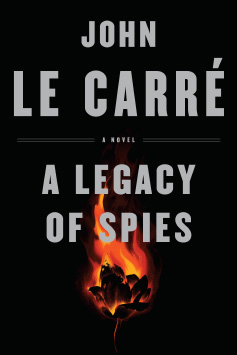
Legacy has always been an operative word for John le Carré, author of the 20th century’s most iconic spy novels. From personal betrayal to the inexorable decline of the British Empire, hints of the past illuminate present moral quandaries and (usually) expedient decisions. And never more so than here, where Peter Guillam—master spy George Smiley’s trusted young associate—acquires a backstory. Born in France in about 1932 to a Breton farmer’s daughter and an English father who later suffered a gruesome death at the hands of the Gestapo, Guillam was recruited to British Intelligence by Smiley himself in the mid-1950s. The will-you-join-us-like-your-father-before-you question, Guillam recalls, came as a warning: it’s vital work, the man who would become his surrogate father told him, “as long as one cares about the end, and not too much about the means.”
Now in his 80s and the last of his kind, Guillam has been hauled into interrogation over Windfall, an early 1960s op that killed British agent Alec Leamas and his civilian girlfriend, Liz Gold. Avenging furies are closing in. The children of the dead are clamouring for an open inquiry (and compensation); the British public—contemptuous of Cold War hypocrisy, forgetful of their own paranoia at the time, mistrustful of government spies and focused on the fate of individuals—is supportive; while the bureaucracy is determined to keep things tidy, even at the cost of trashing the reputations of those once honoured for their service to the state.
Wily as ever, Guillam plays every old-age card he can—he’s deaf, he can’t remember, he has to go to the bathroom every 10 minutes—but the interrogators are relentless and far more ruthless. They’re helped immeasurably by the fact Guillam never developed Smiley’s icy interior. Haunted for half a century by the fate of Leamas and Gold, Guillam is flooded by memories of events and of the same moral compromises that troubled a real-life young British spy of the era named David Cornwell, inspiring him to adopt a pseudonym and start writing as John le Carré.
Now 85 himself, and clearly tying up loose ends, le Carré has crafted a novel as compelling and relevant as any of his earlier works. By bringing together Smiley, his most popular character, and Leamas—whose story is told in The Spy Who Came in From the Cold, the 1963 novel critics judge his greatest—he’s made A Legacy of Spies into the legacy of le Carré.
—Brian Bethune
THE BURNING GIRL
Claire Messud
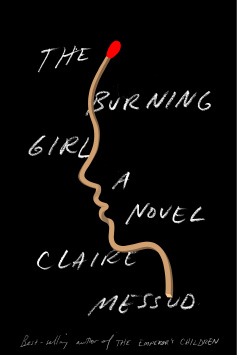
With its tween-girl protagonists, diaristic style, pop-culture references and thrillerish locales—including a haunted quarry and a decrepit mental asylum—Claire Messud’s The Burning Girl has, especially at its outset, all the hallmarks of well-written young-adult fiction, albeit extremely well-written YA fiction. Like her previous novel, The Woman Upstairs, it’s a subtly devastating portrayal of female connection and disconnection. But where in the latter the treachery was adult and personal, here it’s wrought by far more complex forces bound up with the girls’ coming of age.
Julia and Cassie, both only children who’ve grown up like sisters in a small Massachusetts town, are physical—and in some ways temperamental—opposites. Julia, the narrator, is “big-boned,” dark-haired, studious, while Cassie is white-haired, pale-skinned and, we’re often told, “bird-like.” Despite this outward-seeming delicacy, she’s fearless, a renegade. Living with her moody and devoutly Christian mother, Bev, a hospice nurse, Cassie has elevated her father, killed in a car crash when she was an infant, to guardian angel status. Julia’s dentist father and freelance-journalist mother (who likes to start sentences with “As a feminist . . . ”) are, in contrast, blatantly respectable.
After an intense pre-high school summer spent role-playing in an abandoned women’s asylum, the girls’ relationship shifts. A suddenly remote Cassie starts hanging with a rougher crowd as rumours about her behaviour fly. Julia, trying to disguise her hurt, wonders how much her ex-friend’s strange new home situation is a factor: Bev has plunged into a relationship with the truly creepy doctor who treated Cassie for a dog bite, then showed up at Bev’s Bible-study group.
Minor fissures in family, class, expectation and ability soon become amplified. In this, and in the girls’ changing dynamic, the novel favourably recalls both Zadie Smith’s recent Swing Time and Elena Ferrante’s Neapolitan novels. If, for Julia, looming adulthood feels inchoate, ominous—“Sometimes I felt that growing up and being a girl was about learning to be afraid. Not paranoid, exactly, but always alert and aware, like checking out the exits in the movie theatre”—it is more so for Cassie, whose beauty and charisma are no match for Julia’s less flashy advantages: “Without anybody saying so, I was being told that my path was the more valuable.”
A novel of tantalizing unpredictability and profound emotional intelligence, The Burning Girl is arguably Messud’s most brilliant outing to date.
—Emily Donaldson
THE RISE AND FALL OF ADAM AND EVE
Stephen Greenblatt
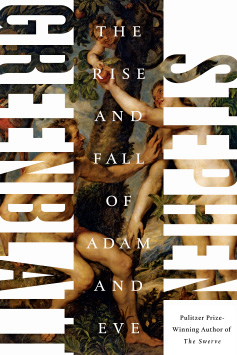
For someone like Greenblatt, who is fascinated by the power of stories, they don’t come much more powerful than the tiny—a page and a half in the King James Bible—account of humanity’s original parents. In it, Jewish, Christian and Muslim commentators have found evidence and explanations for a host of often-contradictory positions. It’s the story of human love or a display of human depravity; it offers a rationale for racial slavery or proves the brotherhood of man; it justifies misogyny or it demonstrates the Genesis ideal of two in one flesh, a marital union unto death.
A fine storyteller himself (he won a Pulitzer for The Swerve: How the World Became Modern), Greenblatt races through the scholarly consensus of when the Genesis account was first written down (late sixth century BCE, when most of the Jewish elite were captive in Babylon) and its relationship to the origin stories Jews had heard in Mesopotamia, to get to one of the towering figures in Western thought. Amid the swirling currents of early Christian debate on just how literally to understand Genesis accounts, St. Augustine (354 to 430 CE) leaned toward an allegorical understanding of much of the Bible’s opening book. But, for complicated reasons of his own—both psychological and theological—Augustine insisted the story of Adam and Eve had actually unfolded just as written. His interpretation gave birth to ideas of original sin and the evils of sex, and to an enduring literalist understanding among Christians.
From there, Greenblatt ploughs ahead to modernity—that is, to Darwin—although, as a scholar of the Renaissance, he devotes considerable space to 16th- and 17th-century artistic depictions of the first couple. But what animates Greenblatt’s book is his uneasy question, always at least hanging over his pages if not openly expressed. From outside the religious tradition, the story is not merely impossible but childlike: magic trees and a talking serpent (who apparently had legs to begin with, since part of his punishment was to lose them). What, then, has given the Genesis account its long influence? For all the subtleties concerning free will and human tragedy Greenblatt mines in a few Bible verses and subsequent commentary, he’s loath to admit what truly powers the story: centuries of fundamentalist, literal acceptance by an entire civilization. That is why, even today, Adam and Eve are embedded in our cultural DNA. We are made in their image.
—Brian Bethune
SING, UNBURIED, SING
Jesmyn Ward
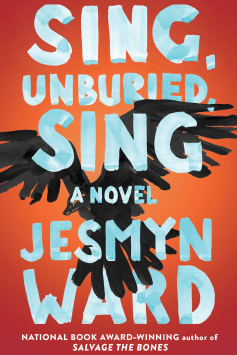
At the outset of Ward’s third novel, 13-year-old Jojo, who lives in southern Mississippi, helps his grandfather (called “Pop”) to slaughter and skin a goat. Packed into a scant few pages are “slime and smell everywhere,” but also emotions from bravery to fear, from empathy to disgust. The scene is emblematic of this multi-layered, unflinching book. Ward, a National Book Award winner for her second novel, Salvage the Bones (2011), digs into the racial and economic tensions in the American South, punching the gut as she squeezes the heart.
Jojo is one of three narrators, along with his mother, Leonie, who is haunted by the ghost of her dead brother, and Richie, a friend of Pop’s from a Mississippi prison farm who is himself a ghost. Here, Ward echoes her 2013 memoir, Men We Reaped, which tells the stories of five men she knew who died young, including her own brother: “My ghosts were once people, and I cannot forget that.” And if there’s the hint of a cliché in her novel—the revenant that hangs around until a conflict can be put to rest—Ward transcends it. The ghosts in Sing, Unburied, Sing are stark reminders of a past that people must come to terms with before the present can be healed.
The bulk of the story takes place on an eventful road trip as Leonie drives her children to meet their father, Michael, at the same prison farm where Pop was incarcerated decades ago. Leonie is black and Michael is white, and their relationship finds them trapped in a cycle of intergenerational despair born from poverty, exploitation, drug abuse and perpetual racism. But the fierce protective spirit that binds Jojo to three-year-old Kayla, and Pop to them both, offers hope.
In the tradition of the Southern grotesque, Ward writes outrageous set pieces on the knife’s edge between tragedy and grim comedy; she also follows Faulkner in unleashing the eloquence of her characters’ perceptions, rather than shackling their narrative voices to their own vocabulary. The result is a work of visceral poetry with rare heft: once you turn the last page, the book feels somehow much heavier than when you started.
—Mike Doherty
SMILE
Roddy Doyle
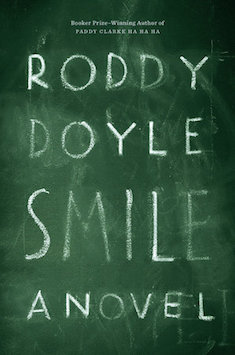
Taped to page 197 of this novel’s advance-reading copies is a piece of paper commanding readers: “NO SPOILERS / You don’t want to be that person.” Suffice to say, there’s an unexpected revelation near the end. There’s a surprise much earlier, too: Doyle, chronicler of working-class Dublin in all its grit and occasional glory, has published a psychological thriller.
It’s not a total departure, however, from his oeuvre or from his life. In the mid-’90s, Doyle campaigned for divorce to be approved in conservative, Catholic Ireland, and he received death threats because of his TV mini-series, Family, which depicted alcoholism and abuse. Smile’s protagonist, Victor Forde, recalls making his name in the ’80s as a professional shit-disturber on radio, arguing for progressive causes such as cohabitation, contraception and even abortion—and flagrantly practising the first two with a glamorous, long-term girlfriend.
But Forde is now 54, and living on his own in a new apartment in a different part of Dublin. He hopes to revive his long-derailed writing career, while going out at night and attempting to fit in with the locals. One of them introduces himself as Fitzpatrick, a boyhood schoolmate of Forde, whom he feigns to remember in order to avoid embarrassment. There’s something disquieting about Fitzpatrick’s aggressive familiarity, and it makes Forde think back to his time in school, where he was taught by abusive Christian Brothers.
Forde starts writing an autobiography—especially of his youthful glory years, when he liked to épater la bourgeoisie and had lots of energetic (and now rather protractedly recounted) non-marital sex. He starts making friends, too, and yet Fitzpatrick looms as an apparently resentful bully, causing Forde to recall more unsettling boyhood scenes.
Smile retains the usual pleasures of Doyle’s sharp dialogue, well-drawn characters and evocative but undemonstrative prose. It’s also a smart book about the performance of masculinity, the impact of religion on social mores and, most potently, the complicated ways we deal with the after-effects of trauma. Readers may lose patience with Forde’s self-indulgent and seemingly privileged reminiscences, and the twist, while surprising, isn’t entirely original—but at the least it adds another layer of complexity, and it’s guaranteed to make you think. You may be driven to find other readers to discuss it, over pints.
-Mike Doherty
MORE BOOK REVIEWS:
- The five books everyone is talking about this August
- Must-read books for June: Play to prose, restaurant reflections
- Must-read books for May: saints, soldiers and social media
- Barbara Gowdy’s mantra: ‘Just lie on your back and write’
- April books: dystopias and arty dogs
- Five books you have to read in February
- David Sax pens a nostalgia-evoking love letter to analog
- Caitlyn Jenner, Rachel Dolezal and instability in gender and race